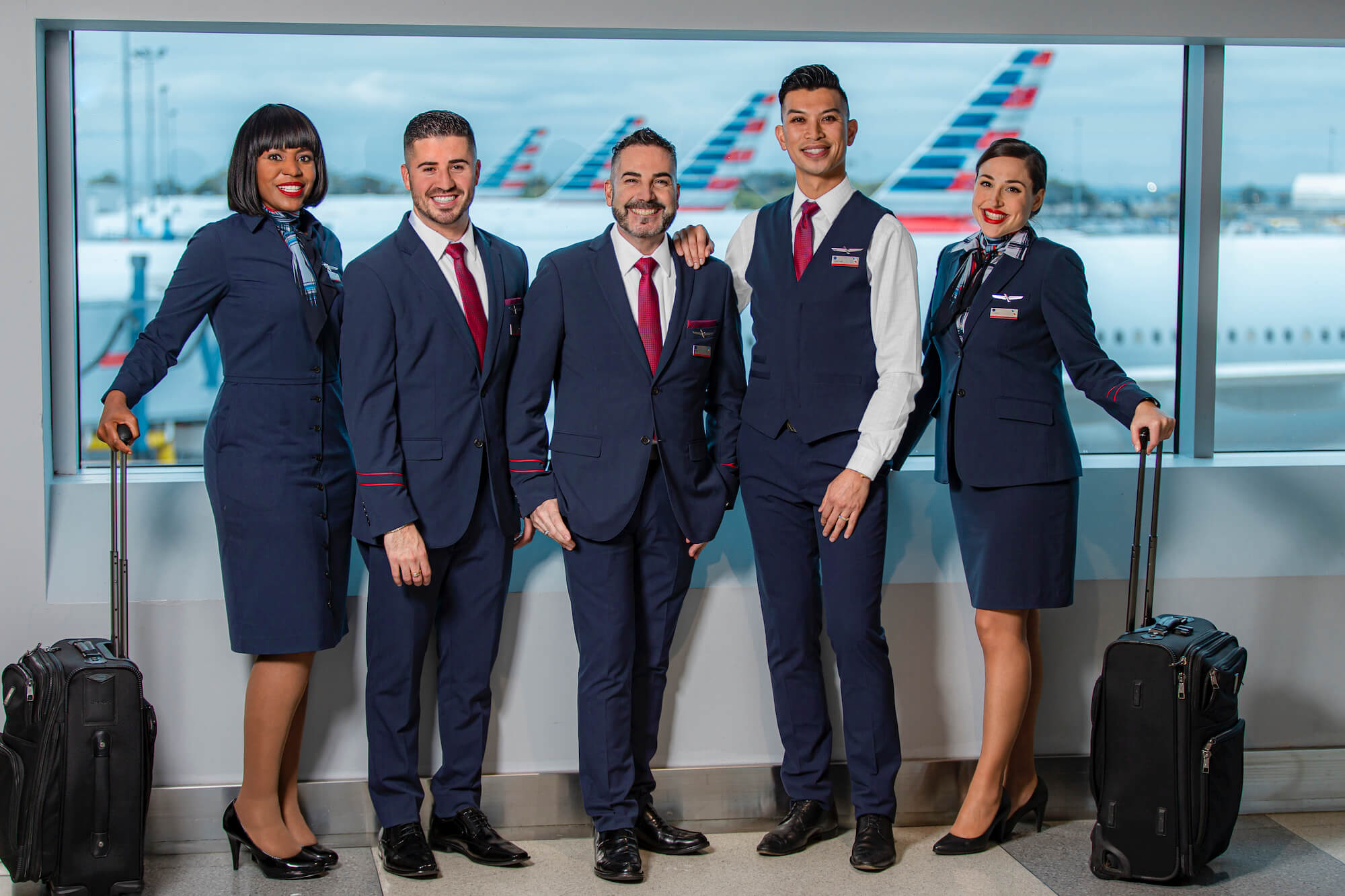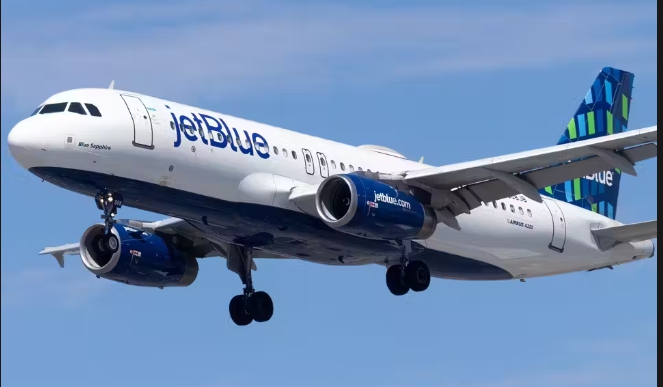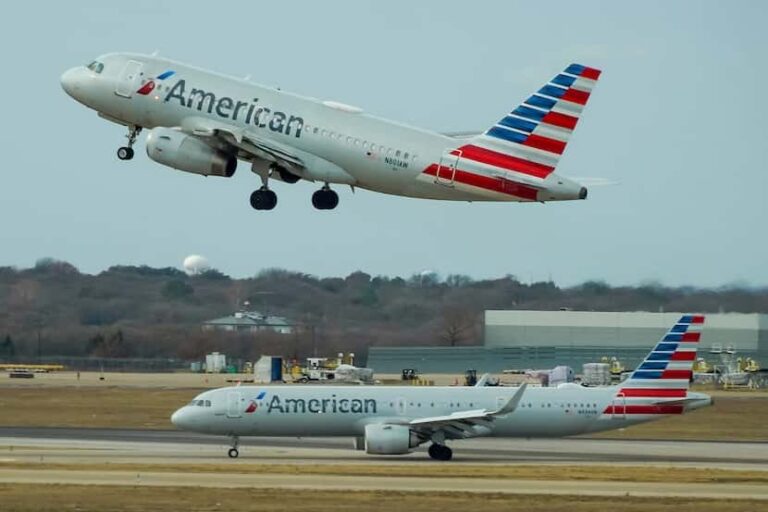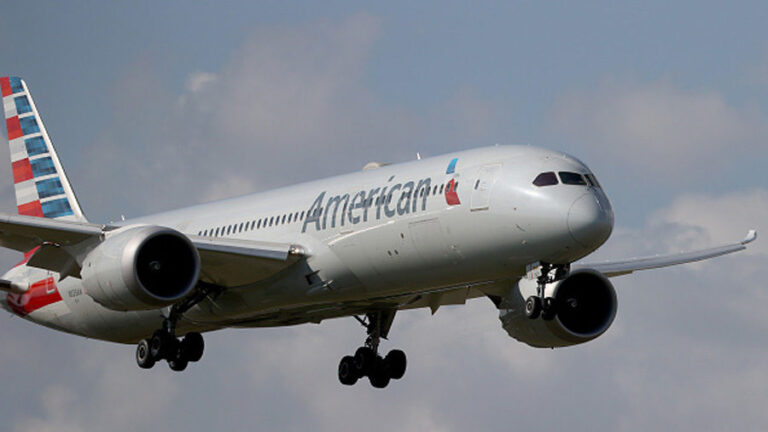Surprising Standoff: Why American Airlines Flight Attendants May Reject Record Raises
American Airlines flight attendants have a lucrative new tentative agreement that they’ll be asked to vote on.
It gives them immediate 18% – 20.5% raises, starts paying them (at half pay) during boarding during the first time, and adopts Delta’s generous profit-sharing formula. They also get changes to work rules, meal costs on the road and retirement contributions. It was likely the most they could get from an airline that underperforms financially, putting them on equal footing or slightly above the next-best paid flight attendants in the industry. But it doesn’t give them everything they’d hoped for. Online, flight attendants are griping.
They are declaring themselves NO.
They are complaining that it’s not as generous as the pilot deal.
They feel like the amount of time it took, and their strike threats, should have gotten more.
There are rumors that the new deal increases flight attendant workload cleaning cabins between flights, even though language in the new deal is identical to their current rules.
They also mistakenly claim they aren’t getting make-good payments for lost raises during the time it took to negotiate a new contract.
Flight attendant chatter is rife with misinformation, which is nothing new. When US Airways took over American Airlines, unions were on board. That always seemed strange to me. US Airways never completed the labor portion of its merger with America West, and was operating the two airlines separately (US-East and US-West). Somehow American Airlines unions thought that Doug Parker would be good for labor.
They agreed to short negotiations on a new contract for the combined US Airways-American Airlines flight attendant group.
And they agreed that if the negotiated deal didn’t go through, the parties would submit to binding arbitration.
The binding arbitration deal was set an $111 million per year in economic improvement. They negotiated $193 million instead. That was better for flight attendants!
But crew voted down the $193 million deal, which meant they were stuck with a $111 million one. In effect, they voted to give themselves $82 million per year less.
In the end, American decided to give them the money anyway but the point is that most flight attendants voting against the deal didn’t understand it. Sure, some people will vote against any deal on principle. But that’s not a majority. Despite the union’s efforts at talking points, messaging, and a phone number campaigning for a deal they’ve negotiated, most flight attendants get their news and understanding by rumor.
And already that’s happening!
Flight attendant commentary online – here in the comments of this blog, in social media such as private Facebook groups, and other forums – is decidedly negative on the deal promising to vote no.
I still believe that in the end it will pass, but it won’t pass overwhelmingly. I believe that because the deal includes full retro pay and the most senior cabin crew may receive one-time checks of over $20,000 in exchange for their yes vote (union leaders can receive checks of over $30,000 so their incentive to get it over the finish line is strong).
And because complainers are the most vocal – online commentary now may not reflect while the majority of flight attendants will believe come start of voting (although complaints can influence beliefs).American Airlines flight attendants will receive the highest pay rates in the industry under this deal. They will receive boarding pay, improved expenses and premium position pay, along with greater retirement contributions. The full retro pay is incredible. But they won’t receive Delta’s profit sharing payouts, because American Airlines doesn’t earn as much profit as Delta.
It’s not clear that the union could possibly have done any better. American is financially vulnerable. With increased costs under this deal, American doesn’t even expect to earn a profit in the current (summer) quarter and they’re the most debt-laden airline. However,
It’s a five year deal, but voting yes means being willing to live under its terms perhaps for the next 8 years – since airline union deals don’t expire they simply become ‘amendable’ and negotiations take time once that happens.
They likely won’t keep the highest pay rates for long. United is negotiating with its flight attendants now. Delta will give its flight attendants another raise next year, and probably a higher percentage increase than American flight attendants will receive. So while this is a great deal for today’s market conditions, it may not keep them ahead of peers.
This deal is heavily skewed towards more senior flight attendants, who don’t just get bigger raises but get bigger raises even in percentage terms.
First year flight attendants will get a $5.47 per hour pay rate raise (from $30.35 to $35.82). A 13th year flight attendant gets a $13.99 per hour pay rate raise (from $68.25 to $82.24). Juniors get 18%, senior crew get 20.5% off a bigger base. And retro pay is substantially higher for senior crew, since it’s calculated off that higher base.Perhaps most importantly, the reason this new deal may see serious flight attendant opposition is because flight attendant union leadership has been making unrealistic promises for years – pay increases nearly double what they achieved. Expectations have been set so high that the best possible deal under a scenario where the Biden administration didn’t want to see a strike, and the union didn’t want to press its luck further risking a Trump administration that appoints a majority of the board. The balance of power on the Mediation Board would shift in 11 months with that electoral result.
Laura Glading was run out of the union for working closely with US Airways management on the takeover of the airline and on the contract that would be imposed on flight attendants after the merger if something better wasn’t agreed to and accepted (the ‘JCBA’ that this new deal is meant to replace). Glading was accused of impropriety because she’s related to former US Airways and then American Airlines executive Tom Weir. She went on to head the FAA’s Office of Labor Relations before retiring.
Current APFA President Julie Hedrick was a legacy American Airlines flight attendant, selected by APFA President Laura Glading as the union’s lead negotiator for the contract that the union voted down. She has been far more militant since becoming union President. But her last deal was voted down.
So it will be very interesting to watch what happens with this deal – will the senior crew who make out better push this through? Will junior crew be happy enough with boarding pay, knowing that working more short flights means that helps them more than those working long haul? Will the allure of big checks up front be enough to get this done?
f they vote no, they will take a long while in getting a new deal done. They won’t be anywhere close to an ‘impasse’ where the federal government allows a strike. They could be dealing with a less-friendly Mediation Board a year from now. And they’ve already rejected the airline’s offer of a 17% raise put into effect while negotiations continue. If flight attendants reject this deal, they will regret not taking home that pay in the interim.
However waiting would mean seeing Delta raises in the meantime, and a new United Airlines deal. It could also mean a recession, and either an improving or declining financial position for the airline. It’s a big risk to take.
S






